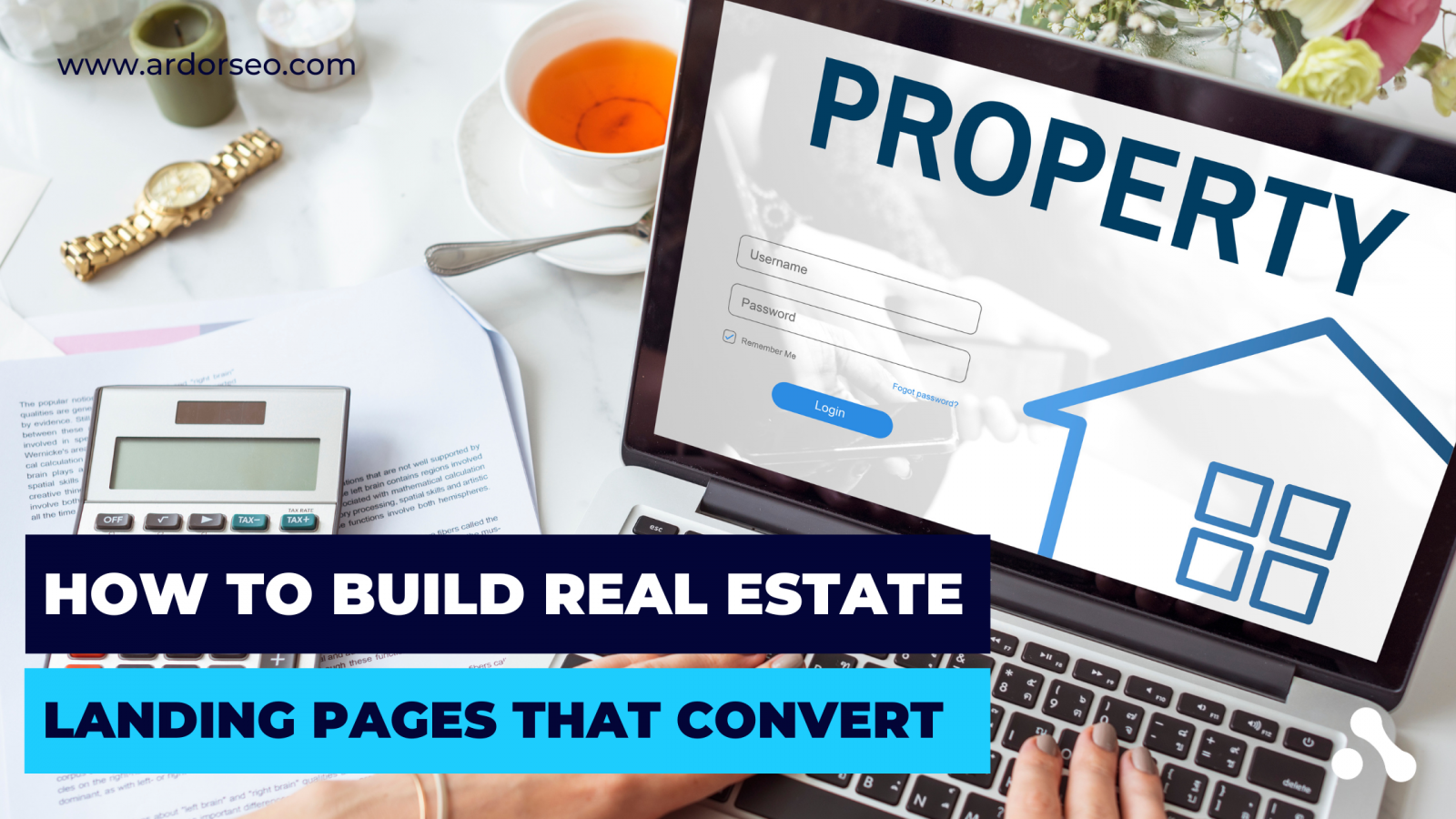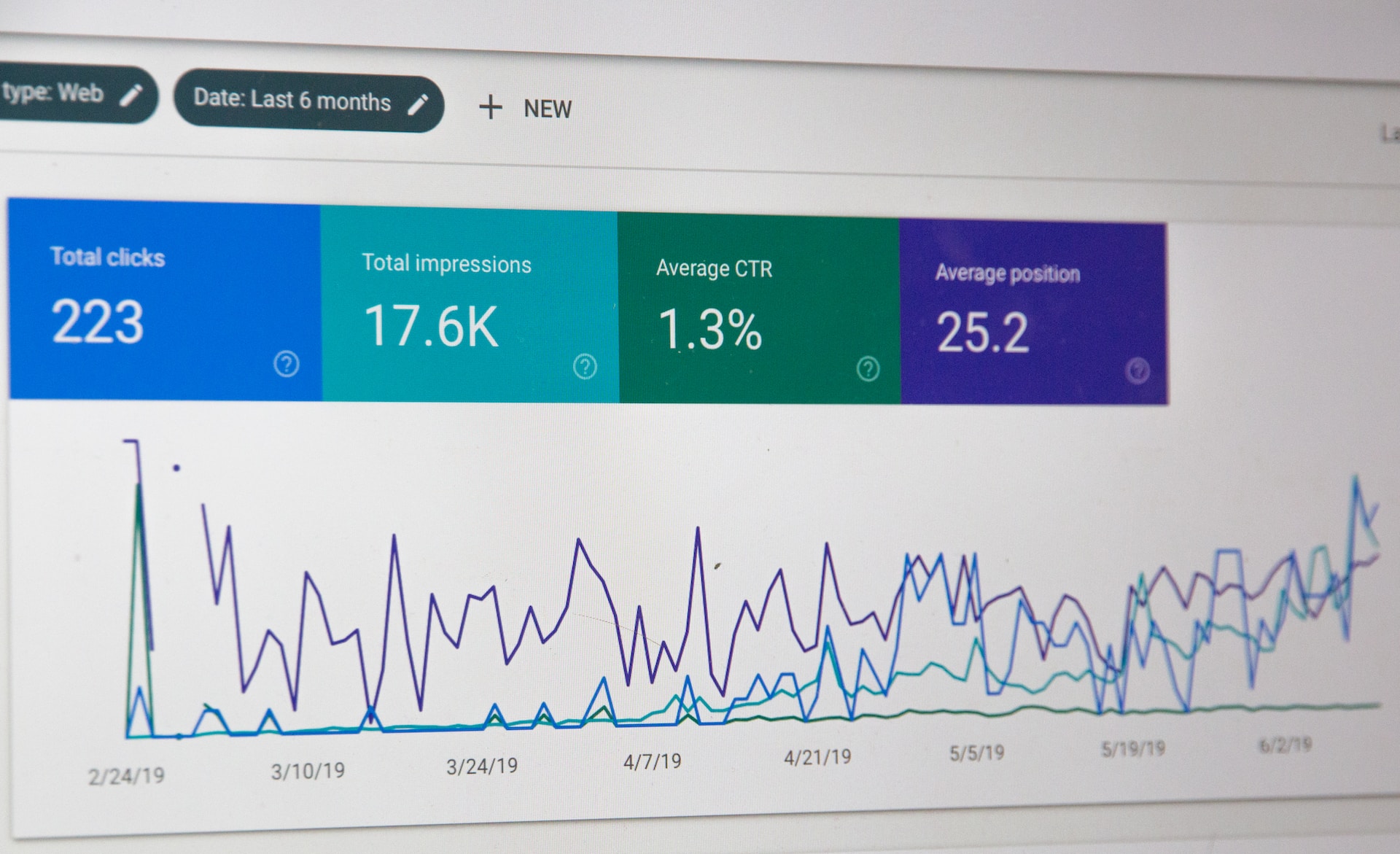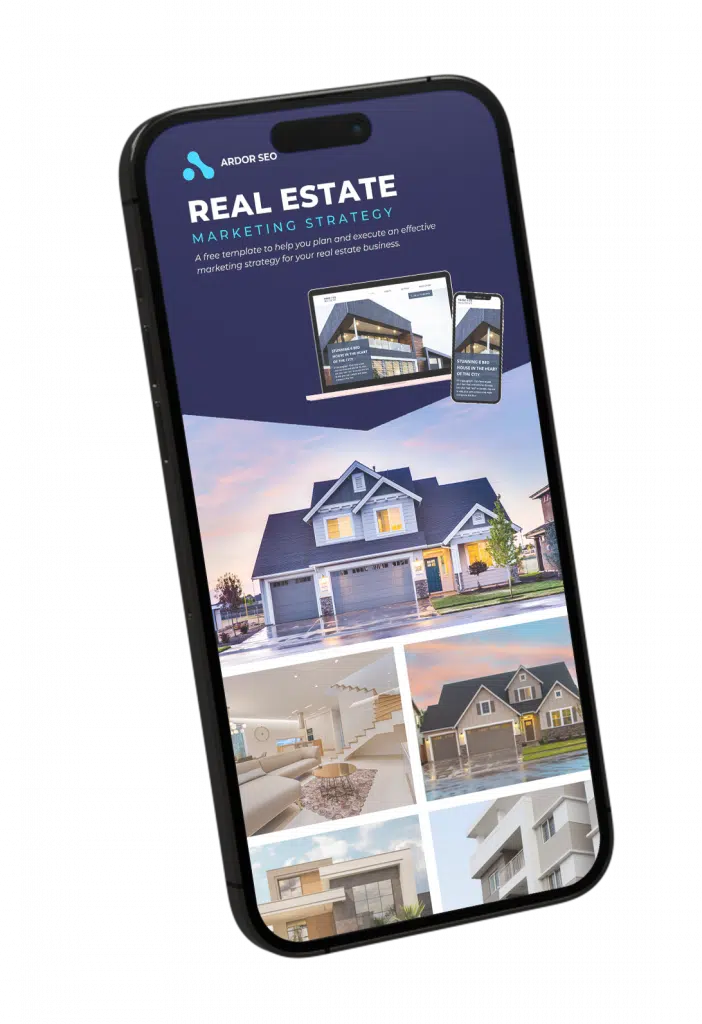
One thing remains constant in real estate marketing: the pursuit of conversions. Whether you're a seasoned agent, a property developer, or a real estate agency, the ultimate goal is to turn website visitors into potential buyers, sellers, or clients. And with today's focus on digital, where the first point of contact often occurs online, the efficacy of your real estate landing page can make or break your success.
The best landing pages for real estate are more than just web pages; they're your virtual storefront, digital handshake, and opportunity to make a lasting impression. It's where you showcase your properties, your expertise, and your unique value proposition to a discerning audience.
This article is your comprehensive guide to building the best real estate landing pages in 2023 that capture attention and convert visitors into leads and clients. We'll explore the critical elements to create landing pages for real estate agents effectively, from understanding your target audience and crafting compelling headlines to choosing the right format, creating persuasive content, and optimizing for search engines.
How to Understand Your Target Audience
Understanding your target audience thoroughly involves identifying buyer personas, which are representations of your ideal clients. These personas should include demographics like age, income, and location, as well as deeper insights into their motivations and challenges, whether they are first-time homebuyers, investors, or empty nesters.
Additionally, analyzing user behavior through web analytics tools helps you track how visitors interact with your pages and which properties generate the most interest. This data-driven approach allows you to optimize your landing pages to meet your audience's expectations.
Ultimately, tailoring your content to your audience is key. Craft compelling headlines, property descriptions, and visuals that address their desires and pain points, emphasizing the features most important to them, such as location, amenities, or investment potential. By creating content that speaks directly to your audience's needs, you foster trust and connection, increasing the likelihood of conversions on your real estate landing pages.
Crafting Effective Headlines and Subheadings

Your landing page's headline is the first thing visitors see, and it must capture their attention immediately. A compelling headline should be concise, emotionally resonant, and convey the unique value of your offerings. It should pique curiosity, address a problem, or promise a benefit. Whether it's "Discover Your Dream Home Today" or "Invest Wisely in Prime Real Estate," the headline sets the tone for the entire page. Experiment with different headlines and use A/B testing to determine which resonates most with your audience.
Subheadings play a crucial role in organizing your landing page's content. They break up long sections of text, making the page more scannable and user-friendly. Subheadings should provide a clear hierarchy and guide visitors through the page's key points. Use them to introduce different sections, highlight benefits, and reinforce your message. For instance, under "Property Features," you might use subheadings like "Luxurious Amenities" and "Prime Location Advantages."
Are your real estate landing pages failing to convert visitors into leads and clients? Crafting compelling headlines and subheadings is a crucial step, but it's challenging to stand out in the competitive real estate market. At Ardor SEO, we specialize in optimizing your real estate landing page content for maximum impact. With Ardor SEO's expertise, your real estate landing pages will become powerful lead-generation tools. Imagine seeing increased engagement, higher conversion rates, and a brighter future for your real estate business, as more visitors turn into satisfied clients. Contact Ardor SEO today!
Choosing the Right Format for Your Landing Page

Choosing the correct format for your real estate landing page directly impacts your ability to engage and convert visitors. Selecting this format for your landing page depends on your goals, whether you're showcasing a single property, multiple listings, real estate services, or resources. These pages focus on lead generation by offering valuable resources in exchange for user information. Clearly communicate the value of the content and its benefits. Use persuasive language to entice visitors to provide their contact details.
Single Property Landing Pages
These landing pages for properties focus on showcasing a single real estate listing. Include high-quality images, detailed property information, pricing, and contact options. Highlight unique selling points to make the property stand out. Visual content like images, videos, and virtual tours is crucial for creating an immersive experience.
Property details and descriptions should be comprehensive, offering a vivid picture of the property. Include strategically placed contact forms and clear calls to action (CTAs) to encourage user interaction.
Multi-Property Landing Pages
Ideal for showcasing multiple listings, these pages require logical organization, such as grouping by property type or location. Implement search filters and sorting options to help users find properties that match their criteria. Incorporate interactive maps and location information to provide context.
Landing Pages for Real Estate Services and Resources
For agents and agencies, agent profiles and bios should be featured prominently. Display client testimonials and reviews to build trust, and provide easy contact options through booking forms.
Compelling Content Strategies

Compelling content is the core of effective real estate landing pages that convert. Craft detailed property descriptions that vividly showcase unique features, layout, and ambiance. Highlight recent upgrades and maintain consistency for trust-building. Invest in professional photos and videos to provide a tangible sense of the property. Consider virtual tours and video walkthroughs for an immersive experience.
Leverage social proof by sharing real client experiences and success stories. Showcase how your services helped clients achieve their real estate goals. Clearly communicate how the property or service meets the audience's needs and desires. Emphasize benefits like cost savings, convenience, or lifestyle improvements.
Keep the page dynamic with real-time property updates. Mark properties as under contract or sold promptly to manage visitor expectations. Offer notifications for new listings or status changes. Transparency is essential. Disclose relevant information such as property history, inspection reports, and pricing details. Honest communication fosters trust and streamlines the buying or renting process. Showcase your expertise by sharing local market insights, including trends, appreciation rates, and neighborhood statistics. Informed guidance enhances your credibility.
Design and Layout Tips
Mobile Responsiveness
Mobile responsiveness is non-negotiable - your landing page must adapt seamlessly to various screen sizes and devices. A mobile-responsive design ensures potential clients have a positive experience regardless of how they access your page. Google also prioritizes mobile-friendly pages in search results, enhancing your visibility.
Clean and User-Friendly Design
Simplicity is key. A cluttered or confusing layout can deter visitors. Opt for a clean and intuitive design that guides users through the page logically. Use ample white space, clear fonts, and a consistent color scheme. Arrange content in a way that highlights the most critical information, such as property details, contact forms, and calls to action.
Consistent Branding
Maintain a consistent brand identity throughout your landing page. Your logo, color scheme, and typography should align with your brand's style. Consistency builds trust and helps visitors recognize your brand. Ensure that your branding reinforces your professionalism and expertise in the real estate industry.
Calls to Action (CTAs) that Drive Conversions

Calls to action (CTAs) are the driving force behind conversions on your real estate landing page. Crafting effective CTAs and strategically placing them can significantly impact your success. They guide visitors toward taking the desired actions, whether it's contacting an agent, downloading a resource, or scheduling a property tour.
Placing CTAs Strategically
CTAs should be prominently visible and strategically located throughout the page. Consider placing them near engaging property descriptions, next to compelling images, or at the end of informational sections. Above-the-fold CTAs ensure that users don't have to scroll to take action, but you should also include CTAs lower down the page to capture those who read more.
Using Urgency and Scarcity in CTAs
Creating a sense of urgency or scarcity can drive action. Phrases like "Limited Time Offer" or "Only One Unit Left" can prompt visitors to take immediate action. Incorporate countdown timers for time-sensitive deals or indicate when a property has received multiple inquiries. However, be honest and transparent to maintain trust.
The Role of Forms and Lead Generation
Forms are the gateways to lead generation on your real estate landing page. They facilitate communication and data collection, playing a vital role in your marketing strategy.
Form Placement and Length
Strategic form placement is key. Contact forms should be easily accessible, and often located near property descriptions or CTAs. Request for Information forms can be placed close to property details. Keep forms concise, requesting only essential information to minimize friction. For example, ask for a name, email, and phone number. Longer forms can deter potential leads.
Lead Nurturing Strategies
After collecting leads, implement lead nurturing strategies to maintain engagement. Send personalized follow-up emails, share relevant content, and provide market insights. Offer additional resources like property alerts or newsletters. The goal is to build a relationship, address concerns, and guide leads toward conversions.
SEO and Real Estate Landing Pages

Effective search engine optimization (SEO) is pivotal in ensuring that your real estate landing pages attract organic traffic and visibility in search engine results.
Keyword Research and Optimization
Keyword research is the foundation of SEO. Identify relevant keywords and phrases that potential clients are likely to search for, such as "homes for sale in [location]" or "real estate agent in [city]." Incorporate these keywords strategically in your landing page content, including titles, headings, property descriptions, and metadata. Balance optimization with user-friendly, natural language.
Local SEO Strategies
Real estate is inherently local, so local SEO is crucial. Optimize for local search by including location-specific keywords, creating Google My Business profiles, and obtaining positive online reviews. Ensure your NAP (Name, Address, Phone number) information is consistent across all platforms. Use schema markup to provide search engines with structured data about your properties and services.
Content Freshness and Updates
Regularly updating your landing pages with fresh content signals to search engines that your site is active and relevant. Feature new property listings, market insights, or informative blog posts. Highlight recently sold properties to showcase your success and expertise. Consistently updated content can improve your site's search engine rankings.
Backlink Building
Backlinks from reputable and relevant websites can boost your site's authority and SEO ranking. Collaborate with local businesses, partner organizations, or industry influencers to secure backlinks. Share your expertise through guest posts on real estate blogs or local publications. Quality backlinks can increase your site's credibility in the eyes of search engines.
Tracking and Analyzing Landing Page Performance
Key Metrics to Monitor
- Conversion Rate: Track the percentage of visitors who take the desired action, such as submitting a contact form or scheduling a property tour.
- Bounce Rate: Monitor the rate at which visitors leave your landing page without engaging further. A high bounce rate may indicate issues with your page's content or design.
- Click-Through Rate (CTR): Measure the effectiveness of your CTAs by tracking the percentage of visitors who click on them.
- Traffic Sources: Identify where your traffic is coming from, such as organic search, social media, or paid advertising.
- Time on Page: Assess how long visitors spend on your landing page. Longer durations often indicate deeper engagement.
Tools for Analytics
Use various analytics tools to gather data about your dedicated real estate landing page's performance. Google Analytics is a powerful and widely used platform that provides insights into traffic, user behavior, and conversion tracking. Additionally, marketing automation software, CRM systems, and A/B testing tools can offer valuable data and insights.
Conclusion

Your ability to convert visitors into clients hinges on the effectiveness of your real estate agent landing pages. By now, you've learned the essential elements that go into building landing pages that truly convert.
However, we understand that crafting these pages to perfection can be a daunting task, especially with the fierce competition in the real estate market. If you're struggling to make your real estate landing pages stand out and convert effectively, Ardor SEO offers the expertise and solutions you need to optimize your landing pages for maximum impact. From crafting compelling headlines and subheadings to enhancing your overall SEO strategy, we've got you covered in making high-converting landing pages.
With Ardor SEO's guidance, your real estate business can look forward to increased engagement, higher conversion rates, and a brighter future filled with satisfied clients. Make the smart move today and take your real estate marketing to the next level with Ardor SEO. Contact us today!

